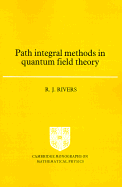Book contents
- Frontmatter
- Contents
- Preface
- 1 Scalar Green functions and their perturbative solutions
- 2 Connected Green functions and their one-particle irreducible components
- 3 Regularisation and renormalisation
- 4 The scalar functional integral
- 5 Series expansions and their summation
- 6 Taking the path integral more seriously
- 7 Quantum theory on non-simply-connected configuration spaces
- 8 Stochastic quantisation
- 9 Fermions
- 10 Quantum electrodynamics
- 11 Non-Abelian gauge theories
- 12 Explicit symmetry breaking and its classical limit
- 13 The effective potential
- 14 Field theory at non-zero temperature
- 15 Field theory at non-zero temperature: real-time formulation
- 16 Instantons
- 17 Composite fields and the large-N limit
- References
- Index
7 - Quantum theory on non-simply-connected configuration spaces
Published online by Cambridge University Press: 04 April 2011
- Frontmatter
- Contents
- Preface
- 1 Scalar Green functions and their perturbative solutions
- 2 Connected Green functions and their one-particle irreducible components
- 3 Regularisation and renormalisation
- 4 The scalar functional integral
- 5 Series expansions and their summation
- 6 Taking the path integral more seriously
- 7 Quantum theory on non-simply-connected configuration spaces
- 8 Stochastic quantisation
- 9 Fermions
- 10 Quantum electrodynamics
- 11 Non-Abelian gauge theories
- 12 Explicit symmetry breaking and its classical limit
- 13 The effective potential
- 14 Field theory at non-zero temperature
- 15 Field theory at non-zero temperature: real-time formulation
- 16 Instantons
- 17 Composite fields and the large-N limit
- References
- Index
Summary
In section 6.5 we looked at the problem of evaluating quantum mechanical path integrals in curvilinear co-ordinates. For the model considered there (a point particle in two dimensions) the choice of curvilinear co-ordinates was capricious, but the use of curvilinear co-ordinates is natural in describing constrained systems. For example, suppose the particle in two dimensions was forced to move on a ring of radius R. The problem of path roughness would then go away, since the scalar curvature would be constant along the path. However, we acquire a new problem in that the configuration space for the particle (the circle) is no longer simply connected – a notion that we shall define later. This, in turn, can induce a new term in the action.
We stress that this term is in no way a replacement for that due to roughness. For one thing, it is of order ħ, rather than of order ħ2. Most importantly it is not unique, leading to an ambiguity in quantisation. This ambiguity is a general property of quantisation on non-simply-connected manifolds. In this chapter we shall sketch how such O(ħ) terms (topological ‘charges’) arise naturally in the path integral formalism which, being an ‘integral’ over paths in the configuration space of the system, is ideally suited for handling non-trivial configuration spaces.
Information
- Type
- Chapter
- Information
- Path Integral Methods in Quantum Field Theory , pp. 135 - 144Publisher: Cambridge University PressPrint publication year: 1987
